Samuel Rutherford Collection (9 vols.)
Digital Logos Edition
Overview
The works of Scottish Presbyterian minister Samuel Rutherford have had a lasting impact on the church. A humble and godly man, Rutherford was revered by many, and his sermons and letters to his congregation during exile give a brilliant window into seventeenth-century church life. But, as well loved as he was, his political activeness during his lifetime drew much ire. At times deeply controversial, he drew criticism from John Milton concerning his views of liberty and conscience, and his outspoken criticism of the government and church forced him into exile. He was eventually charged with treason, but he died before being brought to trial.
With the Logos Bible Software edition of the Samuel Rutherford Collection, you have Rutherford’s insight and wisdom at your fingertips. Scripture passages appear on mouse-over, and all cross-references link to the other resources in your digital library, making this collection powerful and easy to access—a cornerstone resource for any study on Samuel Rutherford or Scottish Presbyterianism . Perform comprehensive searches by topic or Scripture reference—finding, for instance, every mention of “Arminianism” or “grace.”
This title is included in the following collections
You can save when you purchase this product as part of a collection.
Logos 8 Reformed Platinum Lega...
$1,499.99$1,499.99Logos 5 Reformed Platinum Lega...
$1,499.99$1,499.99Logos 9 Reformed Platinum Lega...
$1,499.99$1,499.99Logos 8 Reformed Diamond Legac...
$2,999.99$2,999.99
- $2,999.99
- $2,999.99
- $4,749.99$3,562.49
- $4,749.99
- $4,749.99
- $23,999.99$17,999.99
- $21,749.99
- $24,999.99

- Extensive collection of Rutherford’s correspondence
- Biographical studies on Samuel Rutherford
- History of the Scottish Reformation
- Title: Samuel Rutherford Collection
- Volumes: 9
- Pages: 4,134
- Lex, Rex: The Law and the Prince by Samuel Rutherford
- Christ Dying and Drawing Sinners to Himself by Samuel Rutherford
- The Trial and Triumph of Faith by Samuel Rutherford
- Fourteen Communion Sermons by the Rev. Samuel Rutherford by Andrew Bonar
- Quaint Sermons of Samuel Rutherford by Andrew Bonar
- Letters of Samuel Rutherford by Andrew Bonar
- Samuel Rutherford and Some of His Correspondents by Alexander Whyte
- Samuel Rutherford: A Study by Robert Gilmour
- Reformation in Scotland from the Beginning of the Sixteenth Century to the Year 1688 by John Howie

Published in response to Bishop John Maxwell’s “Sacro-Sanctum Regus Majestas,” Lex, Rex is a comprehensive defense of the Scottish Presbyterian ideal in politics that defends the rule of law and the lawfulness of defensive wars. Advocating for limited government, it supports a “Two Kingdoms” theory of church-state relations and utilizes Scripture and Natural Law arguments. Highly controversial, this book was burned in Edinburgh and St. Andrews, and at Oxford University. Many scholars contend that this work was a major influence in the formation of modern political theory, and it remains one of the most comprehensive expressions of Calvinistic political theory to date.
Samuel Rutherford (c. 1600–1661) was a Scottish Presbyterian theologian and author. He served as a Scottish commissioner to the Westminster Assembly. Rutherford was a regent of humanity at Edinburgh University.

This dissertation on the sacrifice of Christ implores readers to take account of the debt of gratitude they owe to Christ, his death, and his resurrection. In this expansive devotional work, Rutherford dutifully examines Christ’s sufferings and the implications of those sufferings for the Christian life, connecting readers with the passion and persistence of God’s love.
Samuel Rutherford (c. 1600–1661) was a Scottish Presbyterian theologian and author. He served as a Scottish commissioner to the Westminster Assembly. Rutherford was a regent of humanity at Edinburgh University.
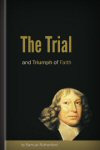
A collection of Samuel Rutherford’s sermons on faith. His oratories work through an examination and discussion of the person of Christ. Rutherford addresses the pursuit of Christ, the act of will in coming to Christ, Christ’s inability to be hidden, and the all-consuming grace Christ offers. In 27 sermons, he faithfully takes on the encounters with Christ present in Scripture, focusing primarily on the Canaanite woman described in Matthew 15 and Mark 7, and offers an interpretation and application of these faith-seeking accounts.
Samuel Rutherford (c. 1600–1661) was a Scottish Presbyterian theologian and author. He served as a Scottish commissioner to the Westminster Assembly. Rutherford was a regent of humanity at Edinburgh University.
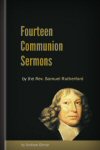
Andrew Bonar compiles Samuel Rutherford’s communion addresses and discourses into a single easy-to-access volume. These sermons, preached in Galloway in the 1630s, were transcribed by attendees; they cover a wide variety of topics concerning Christ and faith.
Andrew Bonar (1810–1892) was a Scottish minister, theologian, and author. A man of devout faith, Bonar was quoted as having said, “It was in the year 1830 that I found the Savior, or rather, that He found me and laid me on His shoulders rejoicing, and I have never parted company with Him all these sixty-two years.”
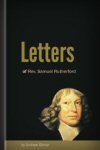
A collection of sermons by Samuel Rutherford transcribed by an unknown listener as they were presented from the pulpit. Written with faithful detail, the manuscripts have since been updated to reflect changes in language across the centuries, while retaining Northern English idioms and language. This volume contains footnotes on language discrepancies and gives readers a comprehensive window into Rutherford’s theology.
Andrew Bonar (1810–1892) was a Scottish minister, theologian, and author. A man of devout faith, Bonar was quoted as having said, “It was in the year 1830 that I found the Savior, or rather, that He found me and laid me on His shoulders rejoicing, and I have never parted company with Him all these sixty-two years.”
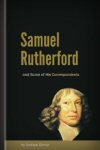
Andrew Bonar offers a biographical sketch of Samuel Rutherford’s life and a compilation of his correspondences. He includes biographical and historical information to provide context for each letter and appends a glossary of Scottish words and expressions to ease reading. More than 350 letters, many of which were written during Rutherford’s exile in Aberdeen, offer indispensable insight into the life and thought of this Scottish theologian.
What a wealth of spiritual nourishment we have here. . . . Rutherford is beyond all praise of men. Like a strong-winged eagle he soareth into the highest heaven, and with unblenched eye he looketh into the mystery of love divine. There is, to us, a something mystic, awe-creating, and superhuman about Rutherford’s Letters. This is a noble volume, and we shall measure the soundness of Scotch religion very much by the sale of this work. . . . When we are dead and gone, let the world know that Spurgeon held Rutherford’s Letters to be the nearest thing to inspiration which can be found in all the writings of mere men.
—Charles Spurgeon, Sword and Trowel
In its own department of devotional literature, Rutherford’s Letters stand supreme. . . . For in every respect this is a perfect edition. Not only is it beautiful in its typography, but it is equipped with all an editor can do for it— a life of the author, biographical, and topographical notes, elucidating the circumstances of his correspondents, and explanations of difficult words and expressions. All lovers of good men and good books should have it.
—Marcus Dods, British Weekly
Andrew Bonar (1810–1892) was a Scottish minister, theologian, and author. A man of devout faith, Bonar was quoted as having said, “It was in the year 1830 that I found the Savior, or rather, that He found me and laid me on His shoulders rejoicing, and I have never parted company with Him all these sixty-two years.”
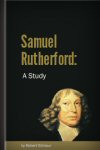
Alexander Whyte provides a brilliant character sketch of Samuel Rutherford, detailing the man as minister, man of God, and in some cases, political rebel. His work provides pertinent background information on most of Rutherford’s correspondents and makes an excellent companion guide to Bonar’s Letters of Samuel Rutherford.
Alexander Whyte (1836–1921) was educated the University of Aberdeen and at New College, Edinburgh. Born into poverty, Whyte was self-educated before a sympathetic minister taught him Latin and Greek so he could attend college. Vowing to never forget the poor, Whyte went on to become a popular preacher and prolific writer. On his coffin were inscribed David's words, “I shall be satisfied when I awake with thy likeness” (Psalm 17:15).
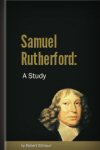
Robert Gilmour’s Samuel Rutherford: A Study provides a comprehensive and critical biography of Rutherford’s life, placing him in the forefront of the history of the Scottish Covenant. Gilmour details Rutherford’s ministry and controversial life and imprisonment, offering an in-depth account of his influence.
Robert Gilmour was a minister of the High United Free Church in Musselburgh.
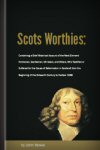
Scots Worthies: Containing a Brief Historical Account of the Most Eminent Noblemen, Gentlemen, Ministers, and Others, Who Testified or Suffered for the Cause of Reformation in Scotland from the Beginning of the Sixteenth Century to the Year 1688
- Author: John Howie
- Publisher: Robert Carter and Brothers
- Publication Date: 1853
- Pages: 632
Scots Worthies gives a brief history of the existence of Christianity in Scotland and the presence and growth of the church. John Howie artfully recounts the lives and deaths of prominent Scots who supported the Reformation in Scotland in the late fifteenth and sixteenth centuries. His work outlines the lives of such reformers and activists as Patrick Hamilton, Andrew Melville, Samuel Rutherford, and William Guthrie. It provides accounts of battles and skirmishes during the Reformation and offers a valuable resource for information on this tumultuous time in Scotland.
John Howie (1735–1793) was a Scottish biographer.
Samuel Rutherford (c. 1600–1661) was a Scottish Presbyterian theologian and author. Politically active, he was often under controversary and was eventually exiled to Aberdeen. Once released, he served as a Scottish commissioner to the Westminster Assembly. Rutherford was a regent of humanity at Edinburgh University.
Reviews
9 ratings

Brayden Brookshier
4/16/2020

Debra W Bouey
4/6/2018

David Leslie Bond
11/20/2013

Mr. Youngblood
10/31/2013

Caleb Allen
10/12/2013

Jerry Peterson
8/15/2013

Daniel Caballero
8/13/2013

RevSarge
8/5/2013

Doug
7/27/2013